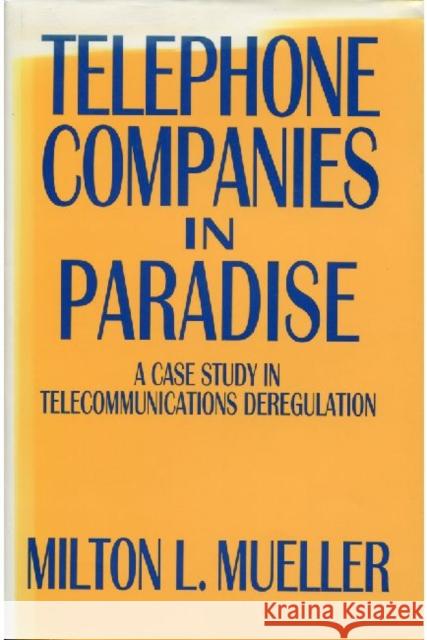Telephone Companies in Paradise: A Case Study in Telecommunications Deregulation » książka
Telephone Companies in Paradise: A Case Study in Telecommunications Deregulation
ISBN-13: 9781560001034 / Angielski / Twarda / 1993 / 185 str.
Computerization has generated dra-matic advances In telecommunica-tions, such as mobile telephones and video conferencing. Coupled with this are major changes in regulation, as telephone companies face new compet-itors. States are experimenting with new forms of utility regulation and de-regulation in order to cope with the demands of rising competition. Here Mueller examines in detail the results of a radical telephone regulation law. In 1986, the state of Nebraska com-pletely discarded traditional utility reg-ulation, deregulating rates and profits of its local telephone companies. The Nebraska experiment has become a benchmark for reassessing the role of state regulation In the future of tele-communications. Using comparative data from five midwestern states, Mueller shows how deregulation af-fected rates, investment, infrastruc-ture modernization, and profits. He uncovers both positive and negative results. Mueller found established telephone companies to be basically conservative, not aggressive and ex-pansionist, and concludes that new competition, not regulation or deregu-lation, is transforming the telecommu-nications industry. This book is the first systematic em-pirical study of the controversial Ne-braska law and its broader effects. It will be a significant addition to the much debated issue of telecommuni-cations deregulation. Economists, pol-icymakers, and telecommunications managers will find in this volume a substantial resource. According to Robert Atkinson, senior vice president of Teleport Communications Group: -Nebraska's experiences with telecom-munications deregulation--the good, the bad and the ugly--need to be un-derstood by all telecommunications policymakers across the country so that they can emulate Nebraska's suc-cesses and avoid its mistakes. Mueller provides the roadmap.-











